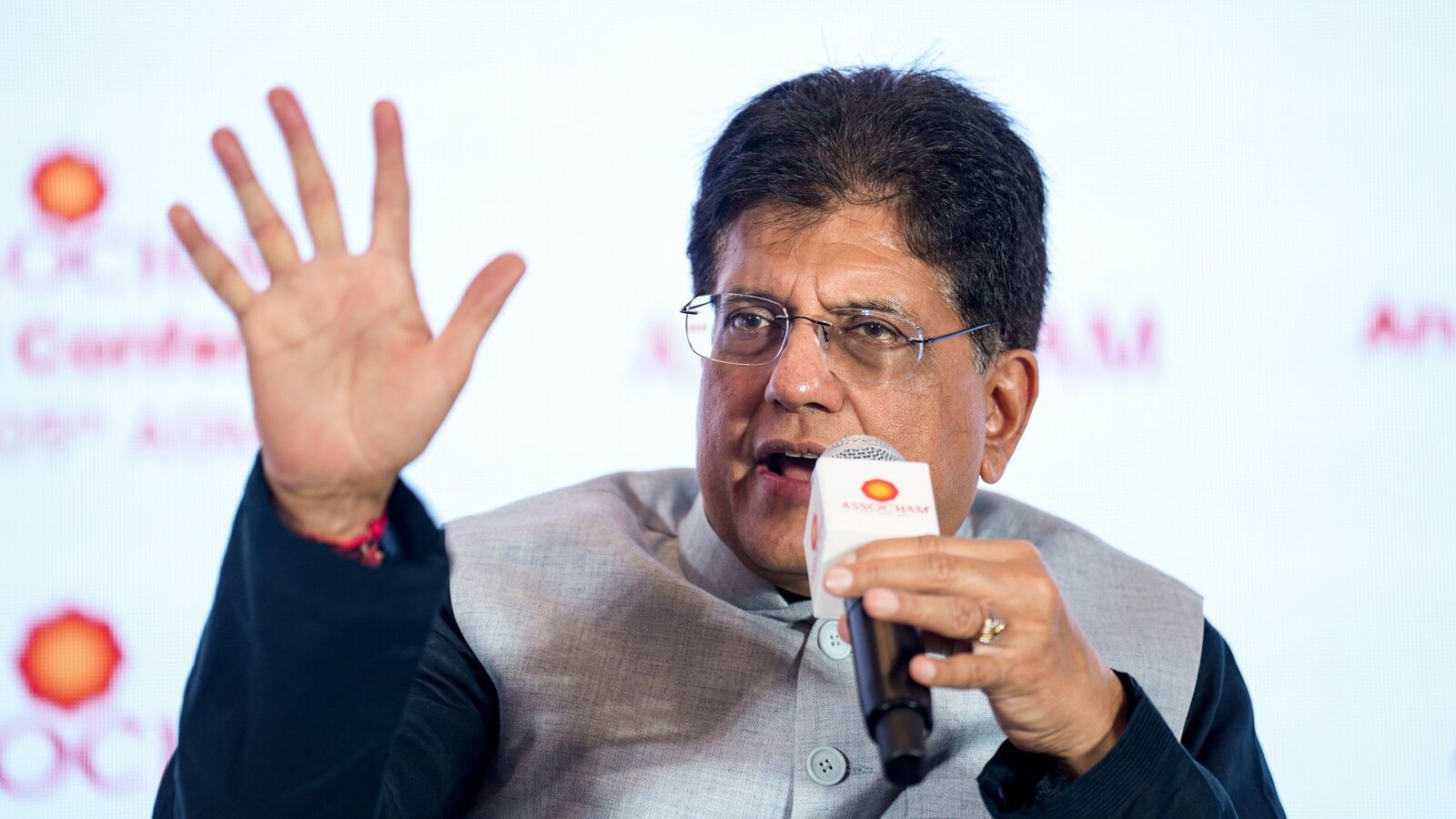The government is steering clear of free trade agreements (FTAs) with countries that directly compete with Indian industry and instead is focusing on countries that complement India’s economic priorities, commerce and industry minister Piyush Goyal said on Friday.
“Countries that come to India with products, goods, and services that straight away impact our own businesses, we have stopped all those types of engagements,” Goyal said, addressing industry leaders at an Assocham event.
The minister’s remarks underline a recalibration of India’s trade priorities after it walked out of the China-backed Regional Comprehensive Economic Partnership (RCEP) in 2019, a move Goyal described as “a bold decision that saved Indian industry.”
Also Read | India, Brazil agree to expand trade partnership; Goyal calls for stronger ties
The expansive trade liberalization will shift toward a strategy rooted in protecting national interests and building partnerships that complement, not compete with, India’s economic priorities.
Instead, India is forging trade partnerships that complement its domestic economy, Goyal said.
“Look at the FTAs we have done,” he said.
“Australia gives us coking coal….and they opened their doors for a lot of our products, automobiles, and students,” he added.
The minister also highlighted the recently concluded FTA with the European Free Trade Association, comprising Switzerland, Norway, Iceland, and Liechtenstein, as a model of mutually beneficial trade.
Goyal said that India was not part of RCEP’s original framework of Asean, Japan, Korea, Australia, New Zealand, and China, but joined negotiations in 2011 without clear reasoning.
Also Read | India, Canada trade ministers hold discussions to strengthen economic ties
Notably, Goyal did not comment on the ongoing US tariffs or India’s negotiations with the US, maintaining a measured stance on sensitive bilateral discussions.
He, however, pointed to the previous government’s experience with China, when India’s trade deficit ballooned from under $2 billion to nearly $48 billion between 2004 and 2014.
“Despite that, they (UPA government) were looking at doing a trade agreement with China (in the form of RCEP),” Goyal said. UPA refers to the United Progressive Alliance.
“That would have been disastrous,” he added.
To be sure, India’s exit from the China-led RCEP in 2019 underscored a decisive shift in its trade approach.
After months of consultations revealed fears of a flood of cheap imports that could hurt domestic manufacturing and agriculture, New Delhi opted out of the world’s largest trade pact.
Complementary pacts
Goyal noted that India’s new FTAs are “crafted with national interest at the core,” designed to generate jobs, boost manufacturing, and strengthen the services sector.
Trade deals with the European Union, US, Chile, Peru, New Zealand, and Oman are currently under negotiation, he said.
“Tell me if any of these affect your businesses, or if they supplement them,” Goyal said.
“That is the strategy, well thought out, in the national interest, to support the Indian economy,” he added.
Also Read | India-US BTA: Goyal says talks on to seal deal amid US shutdown
Goyal said India’s trade approach now blends openness with prudence:
“Trade and tariffs are important, but they have to be systematically and carefully planned so that they do not hurt Indian interests,” he said.
Of course, there’s always a give and take, but every negotiation must leave the country stronger, he added.
Goyal also underlined the growing importance of India’s services exports, predicting they will soon surpass merchandise exports.
As India deepens ties with advanced economies, Goyal added the government’s focus remains on “ease of doing business, decriminalization of laws, simplification of procedures, and reducing compliance burden,” steps aimed at helping industry leverage both domestic opportunities and global markets.
